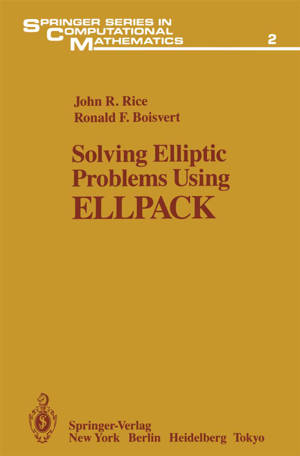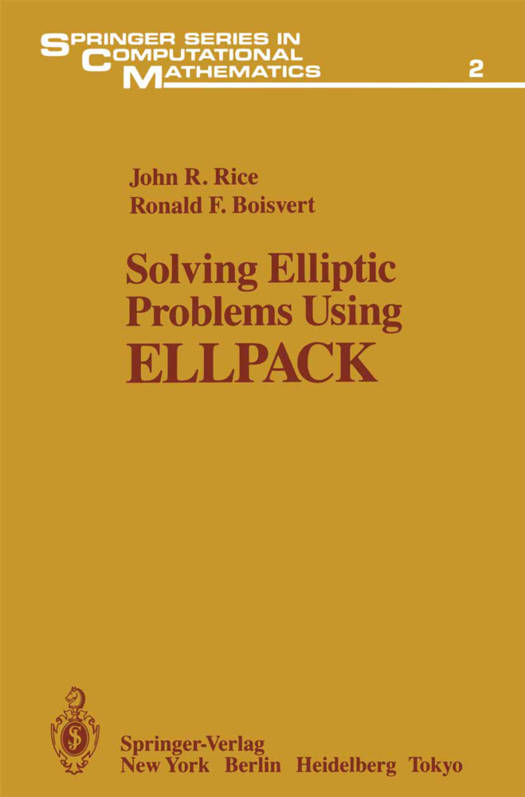
Door een staking bij bpost kan je online bestelling op dit moment iets langer onderweg zijn dan voorzien. Dringend iets nodig? Onze winkels ontvangen jou met open armen!
- Afhalen na 1 uur in een winkel met voorraad
- Gratis thuislevering in België vanaf € 30
- Ruim aanbod met 7 miljoen producten
Door een staking bij bpost kan je online bestelling op dit moment iets langer onderweg zijn dan voorzien. Dringend iets nodig? Onze winkels ontvangen jou met open armen!
- Afhalen na 1 uur in een winkel met voorraad
- Gratis thuislevering in België vanaf € 30
- Ruim aanbod met 7 miljoen producten
Zoeken
Omschrijving
ELLP ACK is a many faceted system for solving elliptic partial differential equations. It is a forerunner of the very high level, problem solving environments or expert systems that will become common in the next decade. While it is still far removed from the goals of the future, it is also far advanced compared to the Fortran library approach in common current use. Many people will find ELLP ACK an easy way to solve simple or moderately complex elliptic problems. Others will be able to solve really hard problems by digging a little deeper into ELLP ACK. ELLP ACK is a research tool for the study of numerical methods for solving elliptic problems. Its original purpose was for the evaluation and comparison of numerical software for elliptic problems. Simple examples of this use are given in Chapters 9-11. The general conclusion is that there are many ways to solve most elliptic problems, there are large differences in their efficiency and the most common ways are often less efficient, sometimes dramatically so.
Specificaties
Betrokkenen
- Auteur(s):
- Uitgeverij:
Inhoud
- Aantal bladzijden:
- 497
- Taal:
- Engels
- Reeks:
- Reeksnummer:
- nr. 2
Eigenschappen
- Productcode (EAN):
- 9781461295280
- Verschijningsdatum:
- 22/09/2011
- Uitvoering:
- Paperback
- Formaat:
- Trade paperback (VS)
- Afmetingen:
- 156 mm x 234 mm
- Gewicht:
- 707 g

Alleen bij Standaard Boekhandel
+ 223 punten op je klantenkaart van Standaard Boekhandel
Beoordelingen
We publiceren alleen reviews die voldoen aan de voorwaarden voor reviews. Bekijk onze voorwaarden voor reviews.











